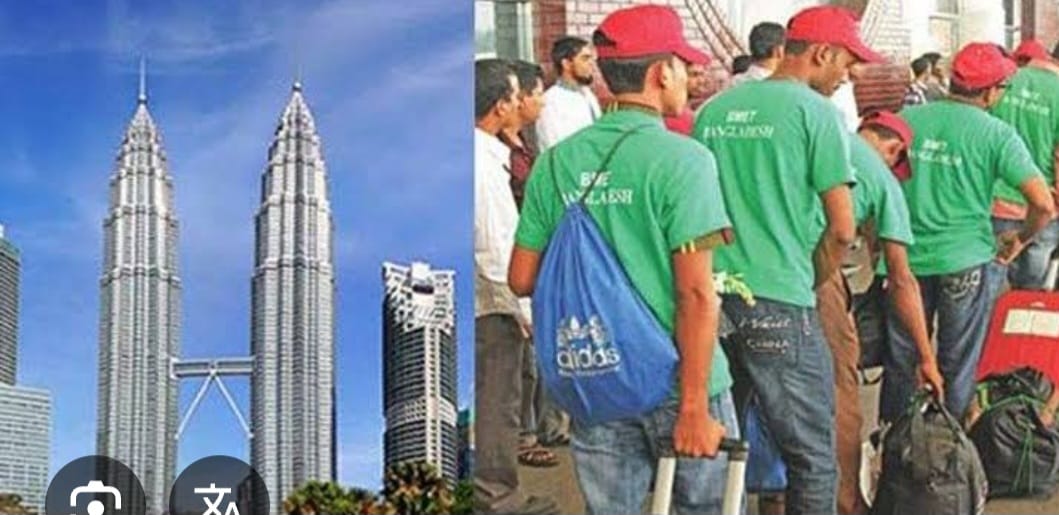Special Correspondent
Published:2025-08-20 20:09:15 BdST
URP and DLR modules finalizedWorkers to go Malaysia at zero migration cost
Bangladeshi workers will soon be able to migrate to Malaysia at zero cost, with all expenses borne by Malaysian employers. Following a recent visit to Malaysia by Chief Adviser Dr. Muhammad Yunus, manpower export stakeholders have signaled that this new system is set to launch.
The system integrates with Bangladesh’s Bureau of Manpower, Employment and Training (BMET) procedures and recruitment management systems used by labor-receiving countries.
However, disputes among local recruiting agencies, lawsuits and corruption allegations have hindered progress. Malaysia has requested Bangladesh to drop unsubstantiated human trafficking and money-laundering cases to facilitate labor market access.
To comply with International Labour Organization (ILO) standards, a recruitment framework has already been developed, named the Universal Recruitment Process (URP), operating through a Direct Labour Recruitment (DLR) platform. Both URP and DLR will run on artificial intelligence (AI) to ensure transparency, eliminate syndicates and middlemen and prevent manipulation.
Malaysia has approved the module, and relevant Bangladeshi authorities have also given positive consent. Officials expect early implementation, allowing workers to migrate to Malaysia with virtually no migration cost.
Malaysia currently recruits foreign workers from 14 source countries through its Foreign Worker Centralized Management System (FWCMS), overseen by the Malaysian Home Ministry and Immigration Department. This digital platform registers foreign workers, processes visas, stores medical reports, and coordinates employer-employee records.
The system is developed and maintained by Bestinet Sdn. Bhd., founded by Dato’ Sri Amin Bin Abdul Nor, who also designed the URP and DLR modules to enable zero-cost recruitment from Bangladesh.
Once approved by the Bangladesh government, separate URP offices will be established in both Malaysia and Bangladesh, gradually expanding to every divisional and district headquarters. Workers will be able to register through an AI-powered URP app free of charge. Malaysian employers will bear all costs—airfare, medical checks, visa, insurance, and other fees—according to each worker’s skill and qualifications. After joining their workplace in Malaysia, URP may deduct a service charge equivalent to the worker’s first month’s salary which will cover recruitment agency and health-check expenses. Only a limited number of licensed recruiting agencies will handle legal and administrative clearances, eliminating illegal intermediaries.
Stakeholders stress that current recruitment practices from Bangladesh violate ILO principles, which require employers to pay all migration expenses.
Under the new AI-driven DLR platform, workers will not pay any fees—eliminating the USD 4,000–5,000 (Tk 5–6 lakh) typically charged today. Employers and workers will communicate directly in their native languages via AI translation, reducing fraud, misunderstanding, and exploitation.
DLR will also verify worker qualifications and align training with both Malaysian and Bangladesh Technical Education Board requirements. This transparent process will boost remittance inflows and enhance Bangladesh’s reputation as a reliable source country for skilled labor.
Dato’ Sri Amin Bin Abdul Nor said that "Though I am a Malaysian citizen, Bangladesh is my birthplace. Workers often sell everything to pay middlemen, only to face exploitation abroad. URP and DLR will directly connect workers with employers, ending the dominance of brokers and ensuring safe, cost-free employment. With government cooperation, Bangladesh can send over 200,000 workers annually, including unskilled labor, under this zero-cost model."
Efforts to obtain comment from Dr. Asif Nazrul, Adviser for Expatriates’ Welfare and Overseas Employment, were unsuccessful.
Unauthorized use or reproduction of The Finance Today content for commercial purposes is strictly prohibited.


